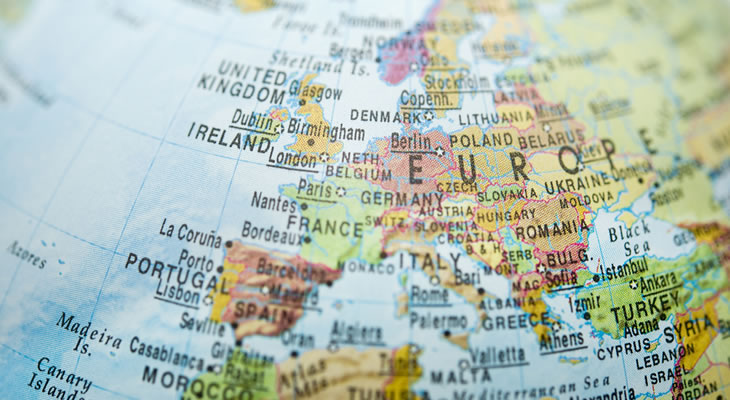On Wednesday afternoon, the Euro has lost ground to a stronger Pound.
The EUR/GBP exchange rate hit 0.8838 on Tuesday, but has since dipped to 0.8803.
This has been brought about by trader uncertainty, as German coalition talks rumble on.
Angela Merkel’s CDU/CSU union and Martin Schulz’s SPD Party are expected to try and form another grand coalition.
Assuming that the two sides can put asides their differences, however, there are still likely to be months of talks before any real resolution.
(First published December 12th, 2017)
The Euro has seen a minor rise against the Pound today, although both currencies may turn volatile on activity stats and earnings data later in the week.
Will EUR/GBP Rate Drop on Manufacturing Disappointment?
Pound weakness has enabled a Euro to Pound rate rise today, but the single currency remains vulnerable to signs of a Eurozone-wide economic decline.
During the month in December, ZEW economic sentiment scores have shown lower confidence in Germany and the overall Eurozone.
Commenting on the stats, Capital Economics Chief European Economist Jennifer McKeown said;
‘It is slightly concerning that sentiment has fallen and on the face of it this index suggests that German GDP growth will slow from Q3’s 2.8% to under 2%.
But [the] relationship [of sentiment] with growth has been weak in the past and more reliable business surveys such as the Ifo point to a further acceleration to come’.
These signs of deteriorating conditions in the Eurozone may be repeated on Thursday, if the German and overall PMI activity measures also drop.
Manufacturing activity is expected to decline in the initial December estimates, as are the collective composite readings.
If the Eurozone PMI readings rise instead of falling as forecast, the Euro might be able to stage a gradual advance against the Pound.
Pound to Euro Rally Possible on Higher UK Earnings
The Pound has fluctuated against the Euro after November’s inflation rate figures came out.
For the year-on-year reading, a rise from 3% to 3.1% was reported. This was an unexpected increase and puts inflation at the highest level since March 2012.
This also means that inflation now exceeds the Bank of England’s (BoE) target by 1.1%, forcing BoE Governor Mark Carney to inform Chancellor Philip Hammond.
Taken on its own, higher inflation means that prices are higher, potentially leading to an even greater UK wage squeeze.
Crucially, however, inflation is tied up with the pace of average earnings in the UK.
UK earnings data will be out on 13th December and is tipped to show a 0.3% rise in October, including bonuses.
If wage growth does increase from 2.2% to 2.5%, the Pound could appreciate because of a slight improvement for UK consumers.
While this would still leave a sizable gap between earnings and inflation, any signs of a closing gap between the two can only be considered good news.
Recent Interbank EUR GBP Exchange Rates
At the time of writing, the Euro to Pound (EUR GBP) exchange rate was trading at 0.8838 and the Pound to Euro (GBP EUR) exchange rate was trading at 1.1314.


Comments are closed.